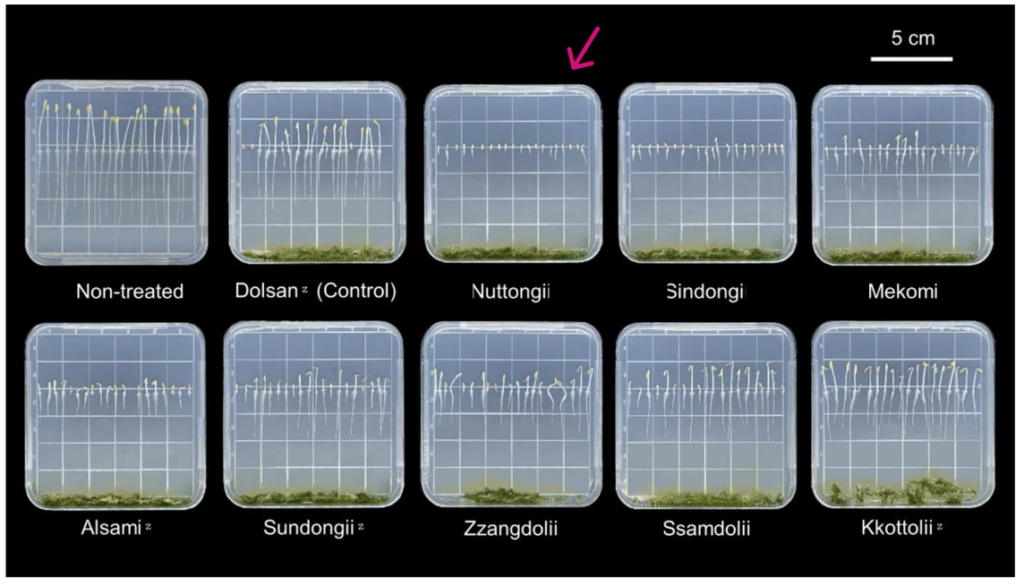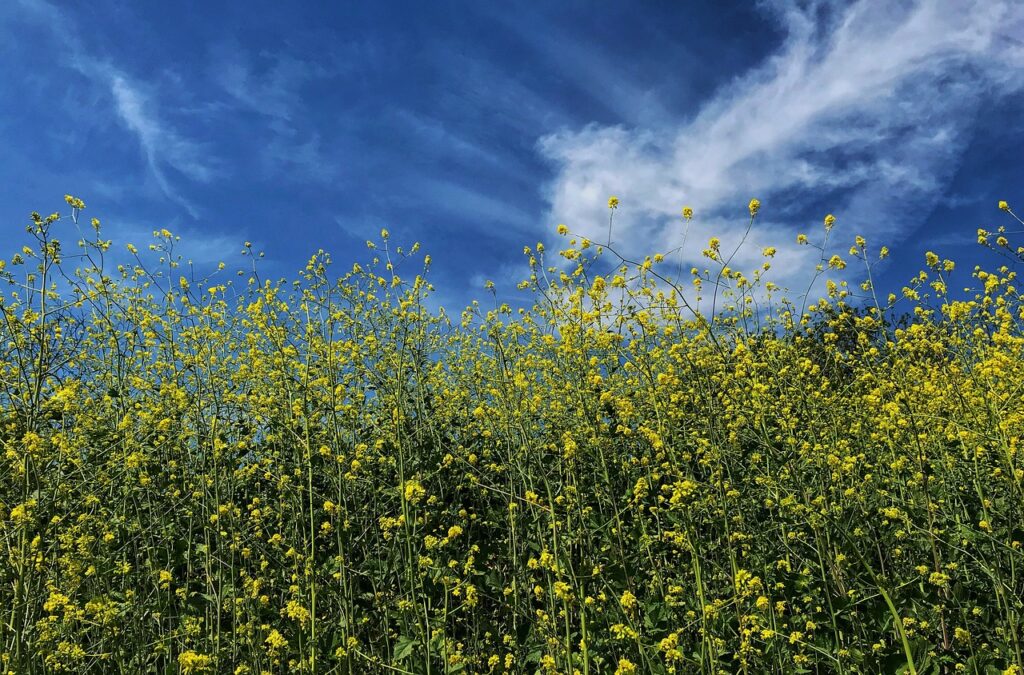Biofumigation by Plant Allelopathy
Have you heard of biofumigation (Biofumigation: Bio=biological, Fumigation=fumigation)? Biofumigation uses natural chemicals from plants to control soil pests and weeds. This eco-friendly method is gaining attention as an alternative to traditional chemical herbicides. Particularly, the allelopathic effects of plants are promising as natural weed suppressants. Allelopathy is a phenomenon where one plant inhibits the growth of other plants. This study investigates the allelopathic effects of eight mustard varieties cultivated in South Korea, aiming to determine which variety has the most potent weed suppression effect. Mustard, also consumed in Japan, contains allyl isothiocyanate, the main compound responsible for its allelopathic effects.
Testing the Allelopathic Effects of Mustard
This study investigated the allelopathic effects of eight mustard varieties bred in South Korea. An allelopathy bioassay using lettuce seeds was conducted. Lettuce seeds were sown on agar medium, with mustard powder added a short distance away from the seeds. The mustard powder used was obtained by harvesting, freeze-drying, and powdering the leaves of each mustard variety. The seeds were cultivated for a period under these conditions to observe the germination rate and initial growth, evaluating which mustard variety exhibited the strongest allelopathic effect.

The results showed that the powder of the mustard variety called “Nuttongii” significantly suppressed the germination rate and initial growth of lettuce. The allyl isothiocyanate concentration in the Nuttongii variety was measured and found to be higher than that of other varieties, indicating that allyl isothiocyanate is a key factor in allelopathy. The experiment revealed that lettuce germination rates decreased by more than 50%, and initial growth was significantly delayed, demonstrating that mustard components can be effectively used for biofumigation.

The Potential of New Biofumigation Agents
The results of this study indicate a great potential for developing new biofumigation agents. This could also contribute to achieving sustainable agriculture. For example, mustard could be cultivated and then plowed back into the soil or harvested and spread as a dried product on the land. These methods can lead to effective weed management without relying on chemical herbicides. Since the biofumigation agents are plant-derived, they significantly reduce environmental impact and naturally decompose, minimizing soil damage.
While the effects might not be as pronounced as chemical-based herbicides, having additional methods is crucial. Chemical substances can be used when a reliable effect is needed, while biofumigation can be employed to reduce environmental load, providing various options for weed control. This not only benefits the fields but also reduces chemical exposure for agricultural workers, leading to health benefits. Future agriculture should aim for low-impact on both nature and humans. The development of biofumigation research is highly anticipated!




コメント